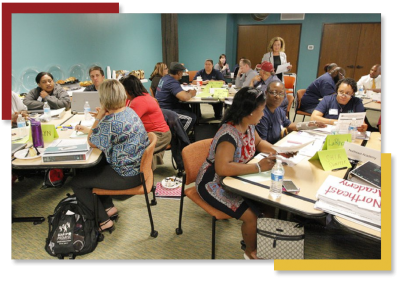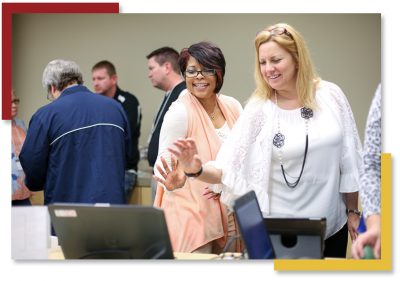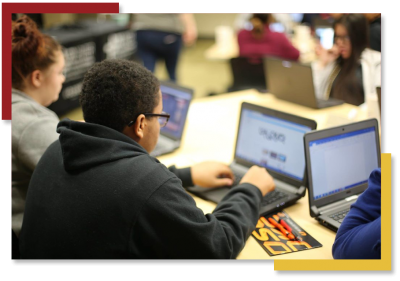STEM & Outside Partnerships
STEM & Outside Partnerships
Philosophy
According to a 2017 report from the U.S. Department of Commerce, employment in STEM occupations has grown 24% in the preceding decade compared with 4% among other occupations. STEM degree-holders have a higher income even in non-STEM careers. Science, technology, engineering, and mathematics workers play a key role in the sustained growth and stability of the U.S. economy. STEM education creates critical thinkers, increases science literacy, and enables the next generation of innovators.


Innovation leads to new products and processes that sustain our economy. This innovation and science literacy depends on a solid knowledge base in the STEM areas. It is clear that most jobs of the future will require a basic understanding of math and science. Despite these compelling facts, mathematics and science scores on average among U.S. students are lagging behind those in other developing countries.
“In the 21st century, scientific and technological innovations have become increasingly important as we face the benefits and challenges of both globalization and a knowledge-based economy. To succeed in this new information-based and highly technological society, students need to develop their capabilities in STEM to levels much beyond what was considered acceptable in the past.”
– National Science Foundation
Results from Past Projects
- STEM Institutes (contract)
- CORPS (OSDE)
- Science Foundations Teacher Academy – OKC (OSRHE)
- STEM Ready Grants (OSDE)
- Math and Science Partnership Grants (OSDE)
- Science PDI (OCTP)
- REESE – KREST Institute (NSF)

Current and Upcoming Opportunities
-
USDA





